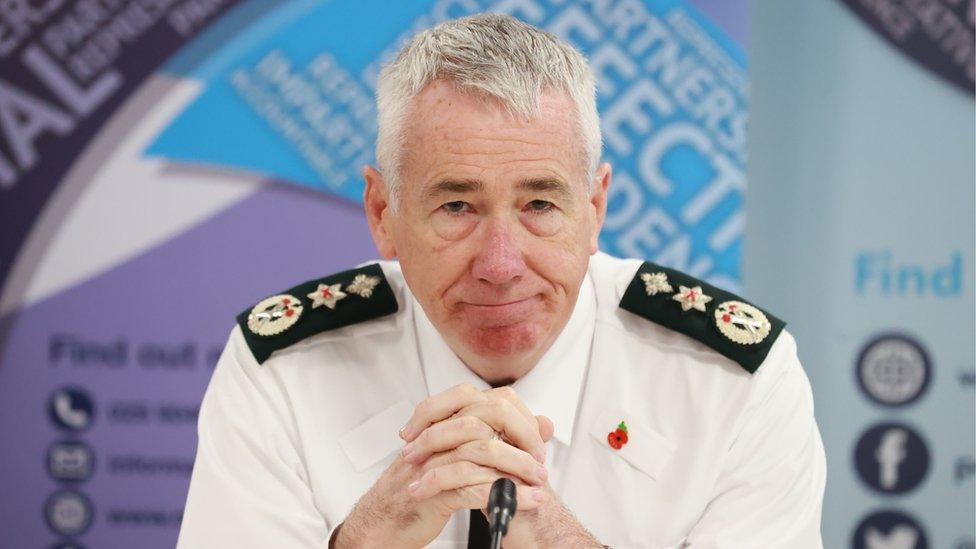Vincent Kearney: Claims PSNI spied on ex-BBC journalist
- Published
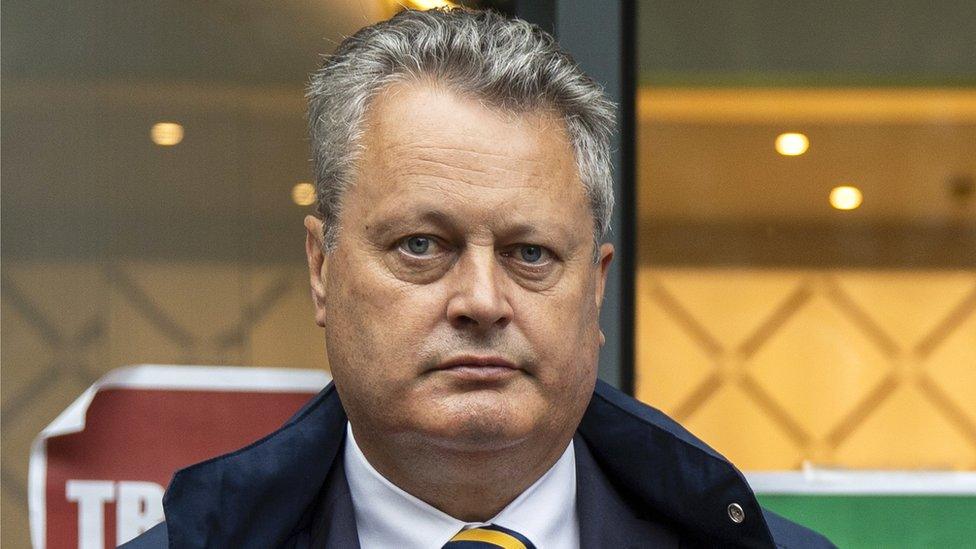
Vincent Kearney presented an episode of BBC Spotlight about the Police Ombudsman's office
Lawyers acting for the BBC have written to the Investigatory Powers Tribunal about the alleged police surveillance of one of its former journalists.
Vincent Kearney worked on Spotlight and presented a programme about the Police Ombudsman's Office in 2011.
Mr Kearney believes the Police Service of Northern Ireland (PSNI) may have attempted to identify sources of information for the programme.
The BBC said "serious issues of public interest are involved".
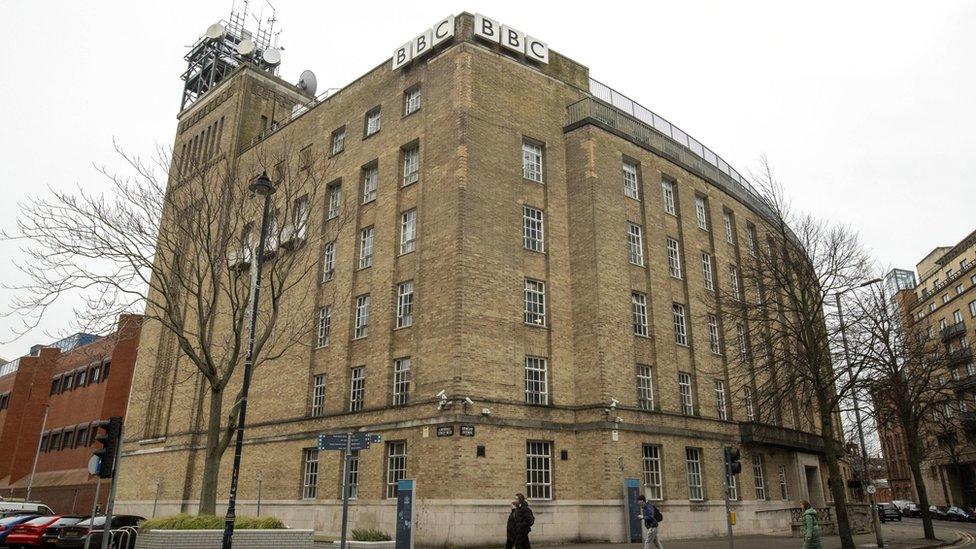
The BBC said issues including "effects that surveillance may have on journalistic investigations and freedoms" were involved
The tribunal is an independent judicial body which considers complaints about public bodies using covert investigative techniques.
It is understood Mr Kearney's case emerged as part of ongoing proceedings involving two other Belfast journalists, Barry McCaffrey and Trevor Birney.
They allege they were the subject of unlawful police surveillance.
In a statement, a BBC spokesperson said: "We have instructed lawyers to write to the Investigatory Powers Tribunal about the alleged PSNI surveillance of telephone data linked to the work of Vincent Kearney during his employment with the BBC.
"We think serious issues of public interest are involved, including in relation to the adverse effects that surveillance may have on journalistic investigations and freedoms."
Mr Kearney now works for RTE.
His Spotlight programme The Whistleblower and the Watchdog examined allegations that the independence of Police Ombudsman had been compromised and that complaints about police activities, including allegations of collusion, were not investigated with sufficient rigour.
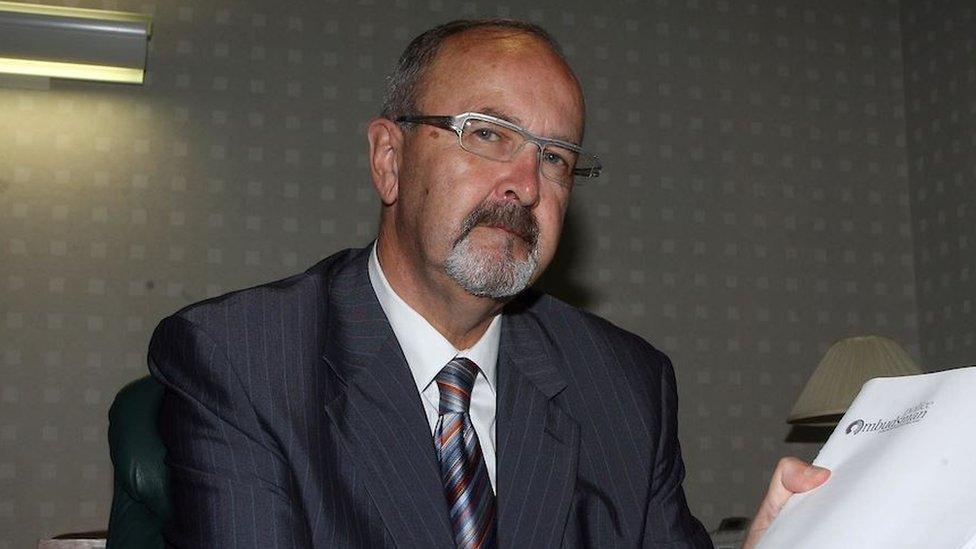
Al Hutchinson stepped down as Police Ombudsman in 2011
The programme resulted in calls for the resignation of then ombudsman, Al Hutchinson, who announced he was stepping down shortly after the broadcast.
'Determined to find out what happened'
"I am concerned the police may have attempted to identify sources of information within the programme," Mr Kearney said in a statement.
"Journalists must be free to carry out their work without fear that the police may secretly try to identify sources.
"I am determined to find out what happened."
Séamus Dooley from the National Union of Journalists (NUJ) has demanded a full inquiry into the matter.
Describing Mr Kearney's investigation as an "outstanding example of public service journalism".
He added: "The fact that Vincent Kearney's programme was about the Office of the Police Ombudsman makes the apparent decision to place him under surveillance in order to uncover sources especially disturbing."
The Northern Ireland Policing Board (NIPB) recently asked the PSNI for a report on the issue of journalist surveillance.
Due process
PSNI Chief Constable Jon Boutcher was asked about Vincent Kearney's case at a meeting of the board on Thursday.
He said he had "enormous regard for [Mr Kearney] professionally and personally".
Mr Boutcher added that he "will ensure that anything, any due process, anything that needs to be done - access to material, for any concerns that anybody's got - follows due process through the IPT (Investigatory Powers Tribunal) through IPCO (Investigatory Powers Commissioner's Office) and through this board."
"That's three layers of examination and scrutiny that we will absolute cooperate with."
Related topics
- Published23 December 2018
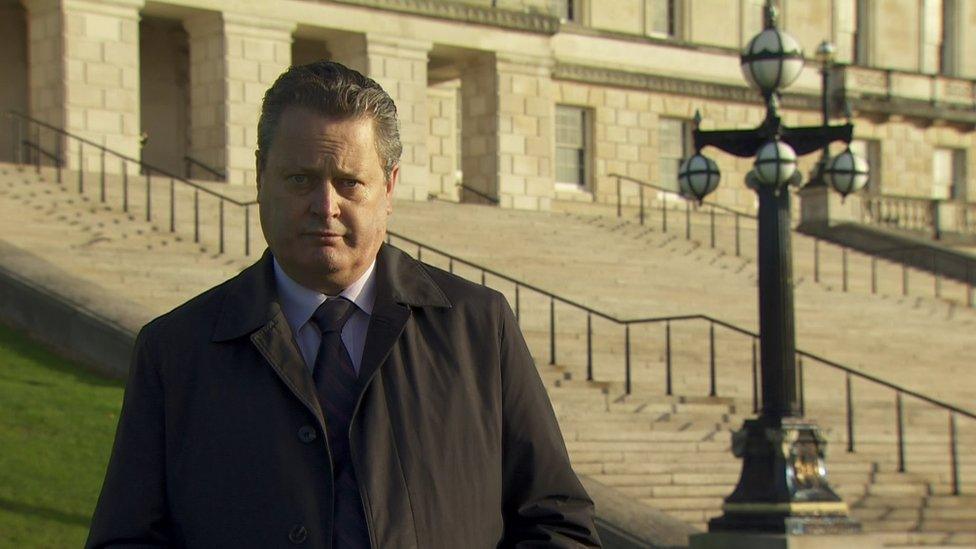
- Published28 February 2024
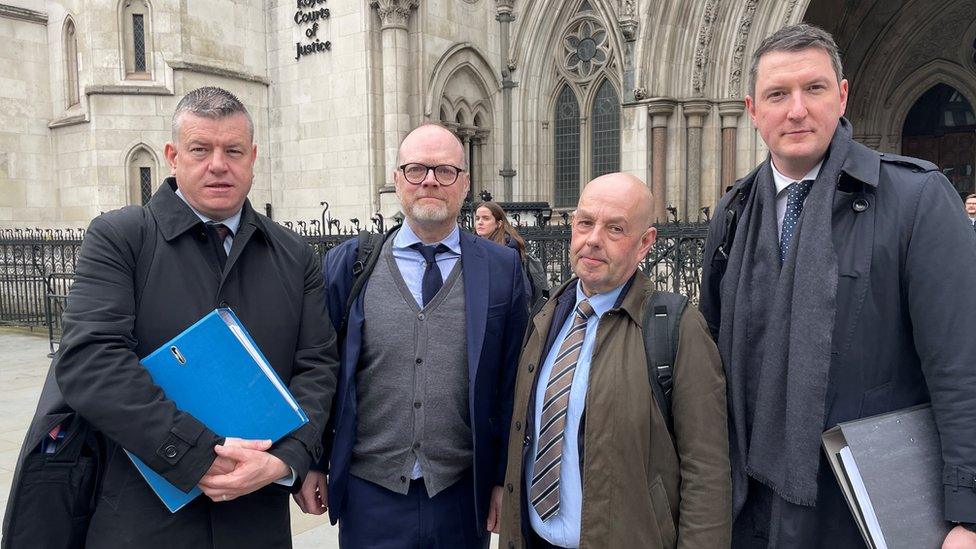
- Published11 April 2024
